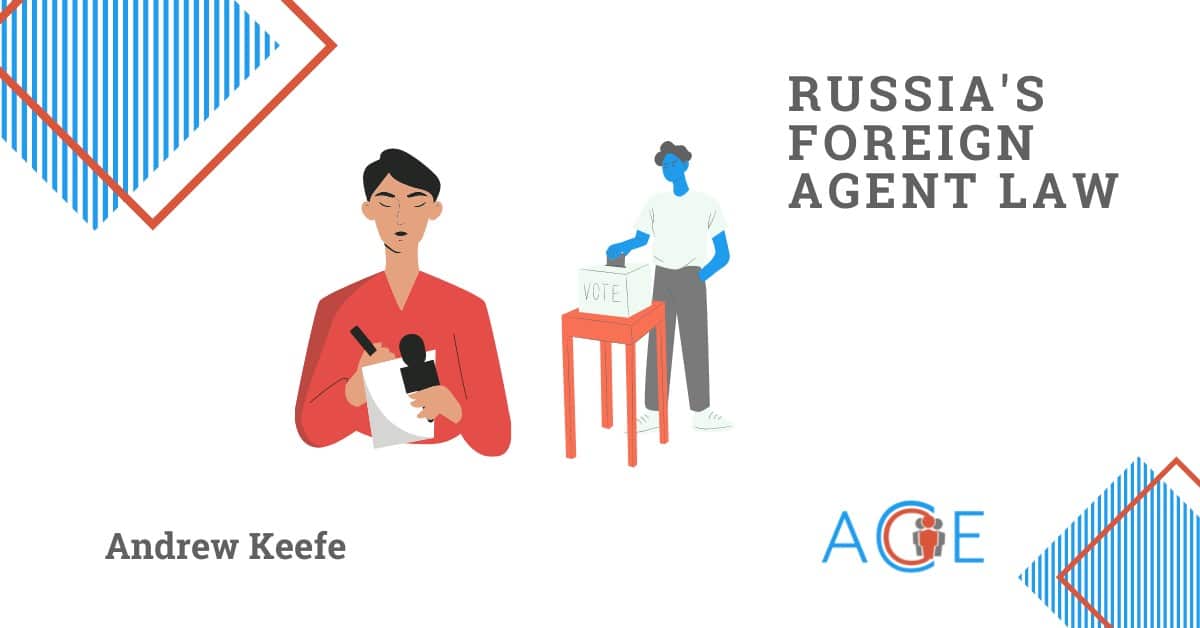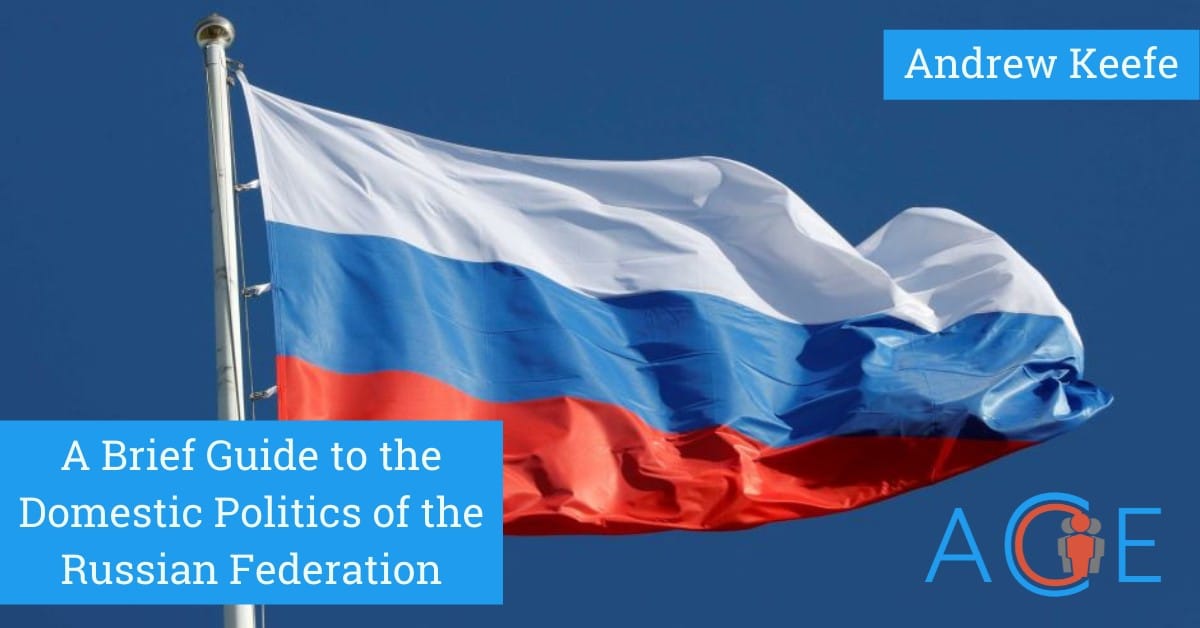Amidst the variety of international criticism expressed about Vladimir Putin’s administration, we frequently hear about the Russian state’s suppression of political dissent, most often through the shutting down of oppositional media organizations or cracking down on protests. Most recently, the issue of Russia’s “foreign agent” law has come to the forefront of this criticism, with a plethora of international groups deriding its use as retaliatory, oppressive, and a means of censorship. The Russian government and adjacent media, on the other hand, view the law as necessary for the protection of the political process, and compare it to other countries’ restrictions on individuals acting in the interest of foreign governments. While there are instances where the law has legitimate standing, it is often utilized as a tool to suppress political goals that are against the administration’s wishes.
What is the Russian law on foreign agents?
Under the law, nonprofits and nongovernmental organizations (NGOs) that receive any funding from foreign sources must report said foreign funding, and also be included on a registry of agents acting in the interests of foreign entities. These organizations can still publish materials if they report their funding properly, but must do so under the stipulation that they explicitly indicate “[the materials] are published … by a foreign agent.” In late 2017, a law was passed that allowed foreign agent laws to extend beyond NGOs, by also including media organizations on their own foreign agent register.
Failing to report funding from foreign sources can result in heavy fines for an organization. Creating or working for an organization which receives international funding can have consequences too, especially if the organization is perceived to be encouraging citizens to “refuse to perform civil duties or commit other illegal acts.” An individual who fails to report their foreign agent status, or proliferates propaganda in service of a foreign agent, may: be fined up to one year of salary or wage, do “corrective labor” for up to two years, or serve jail time for up to two years. Article 3 offers more details on punishment.
Examples of foreign agents on the registry, and the debate around them
The law has been applied to several obvious “foreign agent” mass media, such as Radio Free Europe and Voice of America. These two organizations aim to promote Western and American ideals abroad and receive most, if not all, of their funding from non-Russian sources.
More contentious examples have involved Russian NGOs focusing on election processes, such as Golos, which has twice been branded a foreign agent, and the Levada Center, a sociological research center that surveys public opinion. Golos was designated as a foreign agent leading up to the 2021 State Duma election, because the local vote-monitoring organization received a donation of 200 roubles from an Armenian citizen. The Levada Center was designated a foreign agent in 2016 after the Ministry of Justice claimed to have found hidden sources of foreign funding, a claim which the director disputed.
Supporters of the foreign agent law cite the need to prevent foreign influence and protect Russian sovereignty. When the law was passed in 2012, Pravda described it as “… not prohibitive—as some critics would like to interpret it,” claiming that “thousands” of foreign agents operate in Russia through uncontrollable cash payments. In 2013, President Putin outlined his beliefs to officers of Russia’s Federal Security Service, alluding to some NGOs as “structures financed from abroad and serving foreign interests.” This law, then, is framed as an attempt to regulate these foreign agents, as well as uncontrollable money, in an effort to prevent interference in Russian affairs.
Opponents of the law have decried the discriminatory effects a foreign agent designation holds. The director of the Levada Center emphasized that the term itself, inostrannie agent, has a historical connotation “synonymous with ‘spy’ or ‘saboteur.’” Therefore, citizens are less likely to trust organizations labeled as foreign agents. While Kremlin spokesman Dmitry Peskov has stated that “the department must follow the spirit and letter of the law” in response to criticism about Golos’ registration, opposition figures argue that the stigma of being a foreign agent is a disproportionate response to, in this case, a $3 donation.
IMAGE BELOW: Press secretary Dmitry Peskov with President Putin. Only one day before classifying Golos as a foreign agent, Putin said he would review the “fuzzy criteria” surrounding the law.
After its addition to the registry, the Levada Center conducted a poll on the term “foreign agent.” Among the 1,800 Russian adults surveyed, notable results were as follows:
- Out of the 25% of surveyed adults who had heard of the law, 56% view the law as an attempt to limit Western influence, while 26% see it as an attempt to “clamp down on independent social organizations”.
- 45% associate the term with espionage, “infiltrators”, and double agents; an additional 7% associate the term with an “enemy of Russia”.
- 66% believe an organization who receives foreign money will work in the interests of their foreign sponsor.
By including certain political opposition and media dissidents on the Foreign Agent Registry, the government has found a way to mitigate the proliferation of these organizations’ ideas by legally invalidating their conclusions as the products of foreign sponsorship. By labeling an organization like Golos as a foreign agent, the Russian government delegitimizes their vote-monitoring capabilities to a large chunk of Russians citizens. If, for example, Golos claimed to have evidence of election tampering done by the ruling party, their conclusion would be met with skepticism. The government sees this law as a buttress for Russian unity and stability, while dissidents see it as yet another tool in preventing a civil society outside of the government’s parameters.


